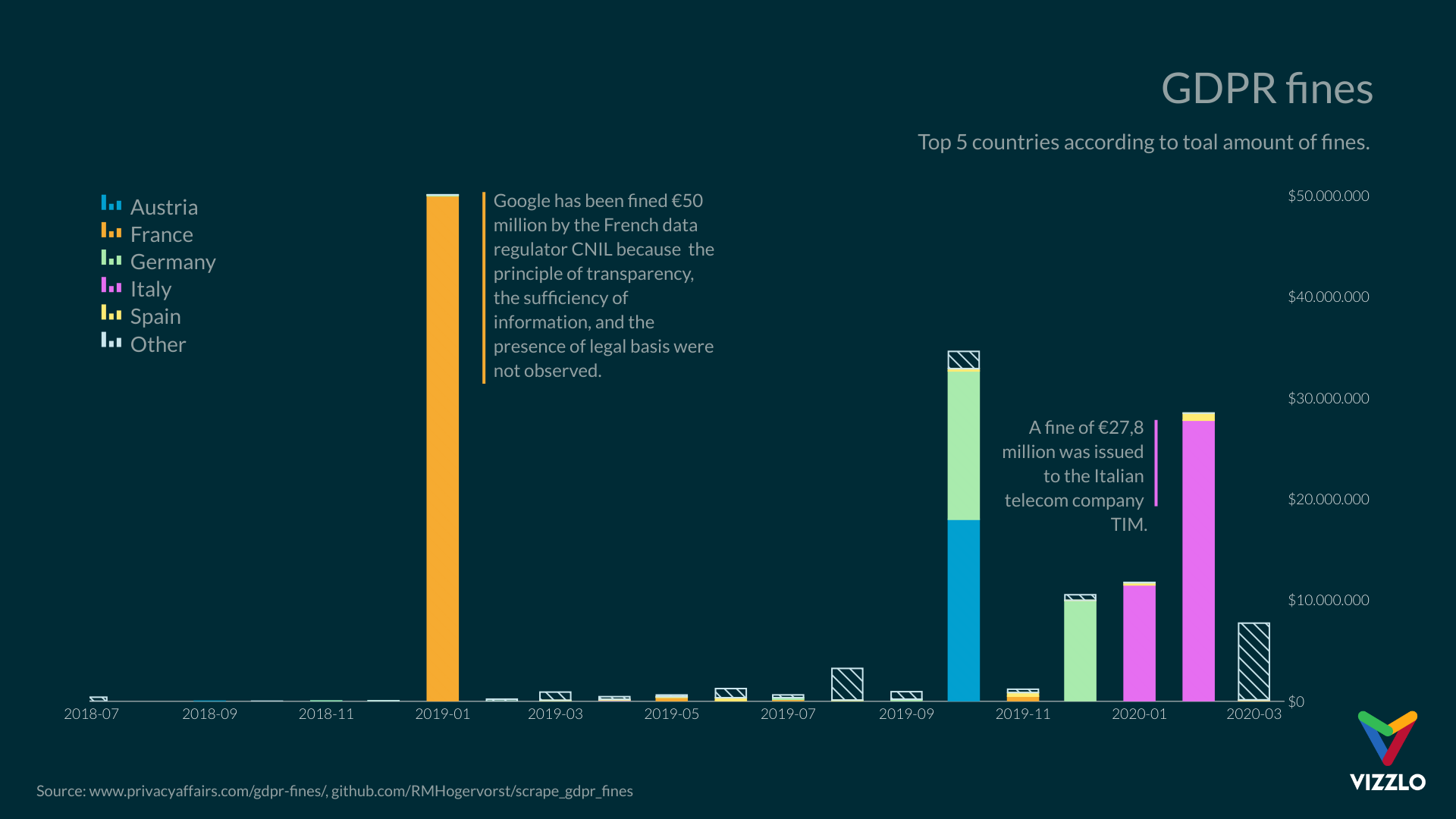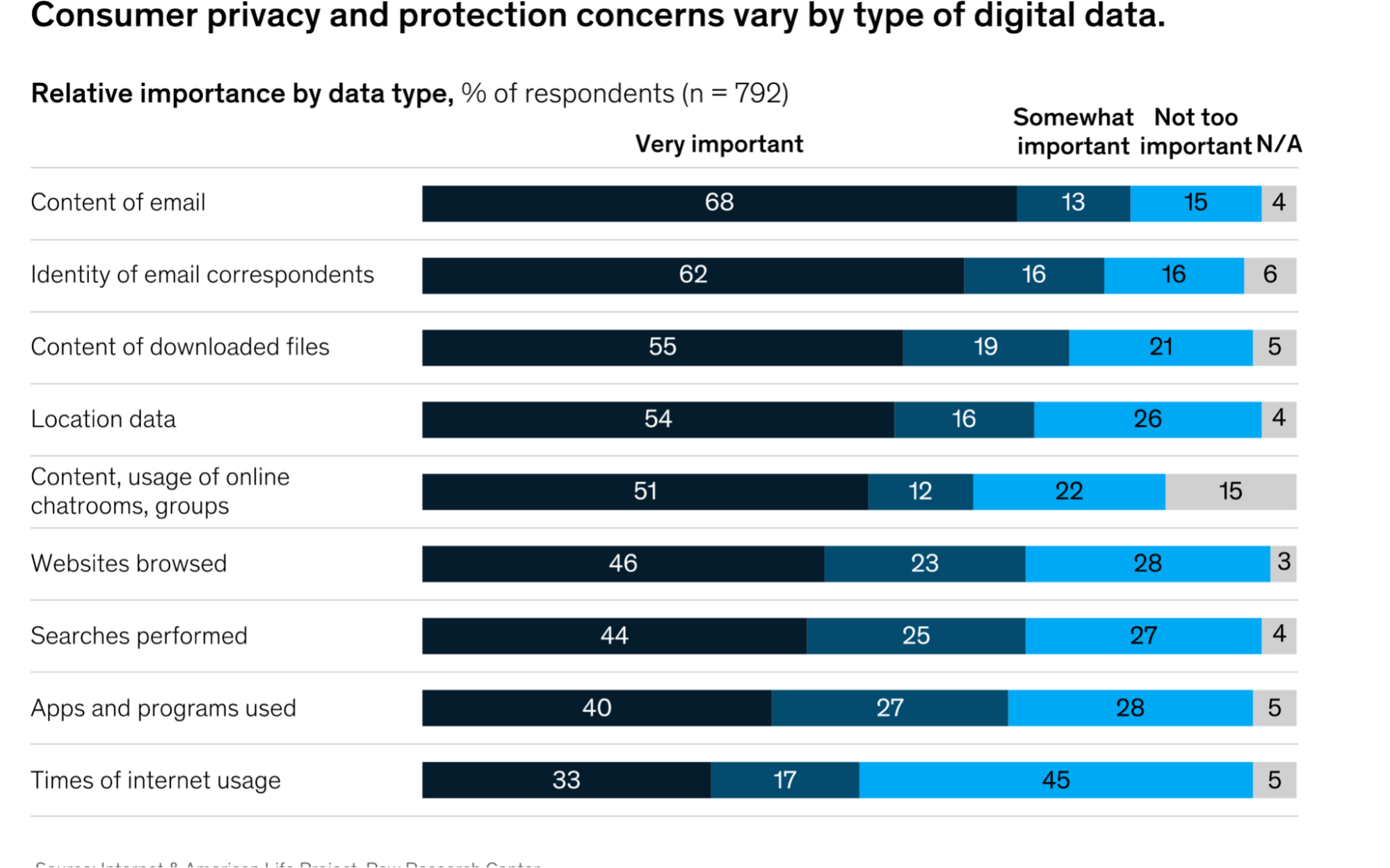If you have data about your European customers, employees, or suppliers, you need to become GDPR compliant. Or you could be at risk of being fined up to €20 million.
This article will explain what GDPR is, why companies are struggling to comply, and how to become compliant.
What is GDPR?
GDPR (General Data Protection Regulation) is a new law that came into effect on the 25th of May 2018. It’s the first update to European data protection laws since the 1990s and was brought in to change the way that businesses store data.
The law is consistent across all 27 EU member states. After Brexit, data on UK citizens came under a new directive known as the UK GDPR. When compared with the U.S, Europe has very stringent data protection rules around how companies use the personal data of their citizens.

The standard of data protection set out by GDPR is high and it could require a significant investment to become compliant. There is a lot of information on GDPR, but it’s often full of legal jargon, making it confusing for the average business owner.
Why are companies struggling with becoming GDPR compliant?
The GDPR laws have been in place for over three years but many companies are still struggling to become GDPR compliant. After a year of the new laws, a Thomson Reuters report found that:
- 79% of organizations are failing to meet the GDPR’s requirements &
- 25% don’t consider themselves knowledgeable about the GDPR regulation.
This shows that even after a year, the majority of businesses were confused by the legislation. Two years on from the report, the picture isn’t much clearer. Here are the main reasons that companies are struggling with becoming GDPR compliant:
A lack of easy-to-understand information on GDPR
One of the main reasons that companies are finding it difficult to become GDPR compliant is the complexity of the information that has been provided.
The GDPR document is 100 pages long and contains a lot of legal jargon. For companies with dedicated legal teams, this is relatively easy to digest. However, for small and medium-sized businesses, it is a huge undertaking.
GDPR being pushed down the priority list for businesses
It’s possible that becoming GDPR compliant isn’t at the top of some companies’ priority list. Despite the fact that it is a legal requirement, many businesses will have neglected to prioritize becoming GDPR compliant.
GDPR legislation being unclear
In addition to the GDPR information being complicated, it is also intentionally ambiguous in some instances. Some experts interviewed in the New York Times even doubted whether it was possible to achieve absolute compliance. This lack of clarity could make it difficult for businesses to follow the rules.
Not enough fines being issued (and therefore no repercussions)
For many businesses, the pressure to become GDPR compliant isn’t high enough. In the first two years of the GDPR, very few fines were issued. However, that is starting to change.
According to research conducted by DLA Piper, GDPR fines rose by nearly 40% in 2020. This increased pressure will force more businesses to take action.
Businesses still using outdated operating systems that make them susceptible to cyber-attacks
Many businesses are still using outdated operating systems that could leave them susceptible to cyber-attacks. The resistance to updating technology could put them at risk of failing to comply with GDPR.
Internal business processes not being up to scratch
In order to become GDPR compliant, many businesses will have to improve and update their business processes. Certain processes like call center quality assurance, email marketing, and customer data storage will need to be reviewed in order to become GDPR compliant.

How do you become GDPR compliant?
This section will offer some tips on how to become GDPR compliant. However, you should still read through the legislation in full to ensure compliance.
Organize your data
The first thing you need to do is get your data organized. An organized system will make it easy to find a specific individual’s data and will make your life far easier if you are investigated regarding GDPR. You also need to know how your business collects data. Data can be collected through email marketing, sign-up forms, a virtual phone number, social media, and more.
Make sure data is secure
You need to ensure that the data is secure. This means ensuring that nobody could leak or hack data. Measures could include storing data in a secure cloud, installing anti-virus software, and implementing a way to remotely wipe lost or stolen devices. You also need to consider the security of any hard copies of your data.
Don’t keep data that you don’t need
You can’t keep an individual’s data if you don’t know what you are going to do with it. You need to have a clear reason for holding data.
Create a fair processing policy
A fair processing policy is a document that clearly explains:
- What data you are going to be taking from people; and
- How you are going to use it.
In most cases, individuals won’t ask to see your fair processing policy. However, it needs to be easy for them to access. It’s also important to write this policy in a way that individuals can understand.
Create a process for providing an individual with their data
You need a clear process for sharing it. The information must be provided within one month and free of charge. You also need a separate process for deleting an individual’s data if they ask you to.
Allow people to opt-in to share their data
Under the GDPR regulations, you cannot take an individual’s data without them positively opting in to sharing it.
In email marketing, this means creating a box that the customer has to tick. In telephone sales, a rep can ask for their permission or you can use contact center AI to automate it. Consumers care more than ever about their data. It will benefit your brand to have a proactive approach to offering consumers the choice to share their data.

Outsource GDPR compliance
Many business processes are now outsourced for ease. You can outsource software testing, customer service, marketing, and much more. You can also outsource GDPR compliance. This will ensure that you are totally compliant without interrupting the daily running of your business.
Conclusion
There are plenty of benefits to the GDPR. From data security improvements to a better relationship with customers, ensuring compliance with the GDPR will help your business in the long run. It’s important to read and understand the GDPR document. This will help you ensure that your business is totally compliant with the new regulations.
Business & Finance Articles on Business 2 Community
(45)








